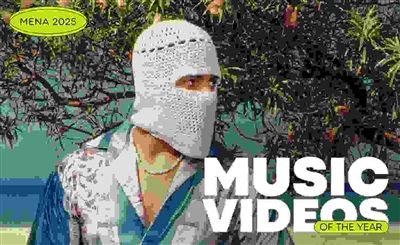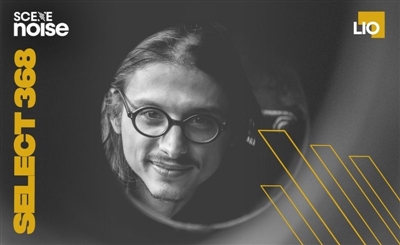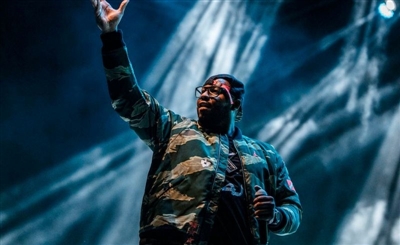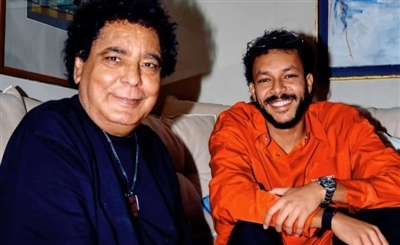El-Far3i: I'm Not an Activist, I'm a Rapper
Kamila Metwally meets Tareq Abu-Kwaik, AKA El-Far3i, to talk about his split from El-Morabba3, importing Hip-Hop into the Arab world and rap for rap's sake...
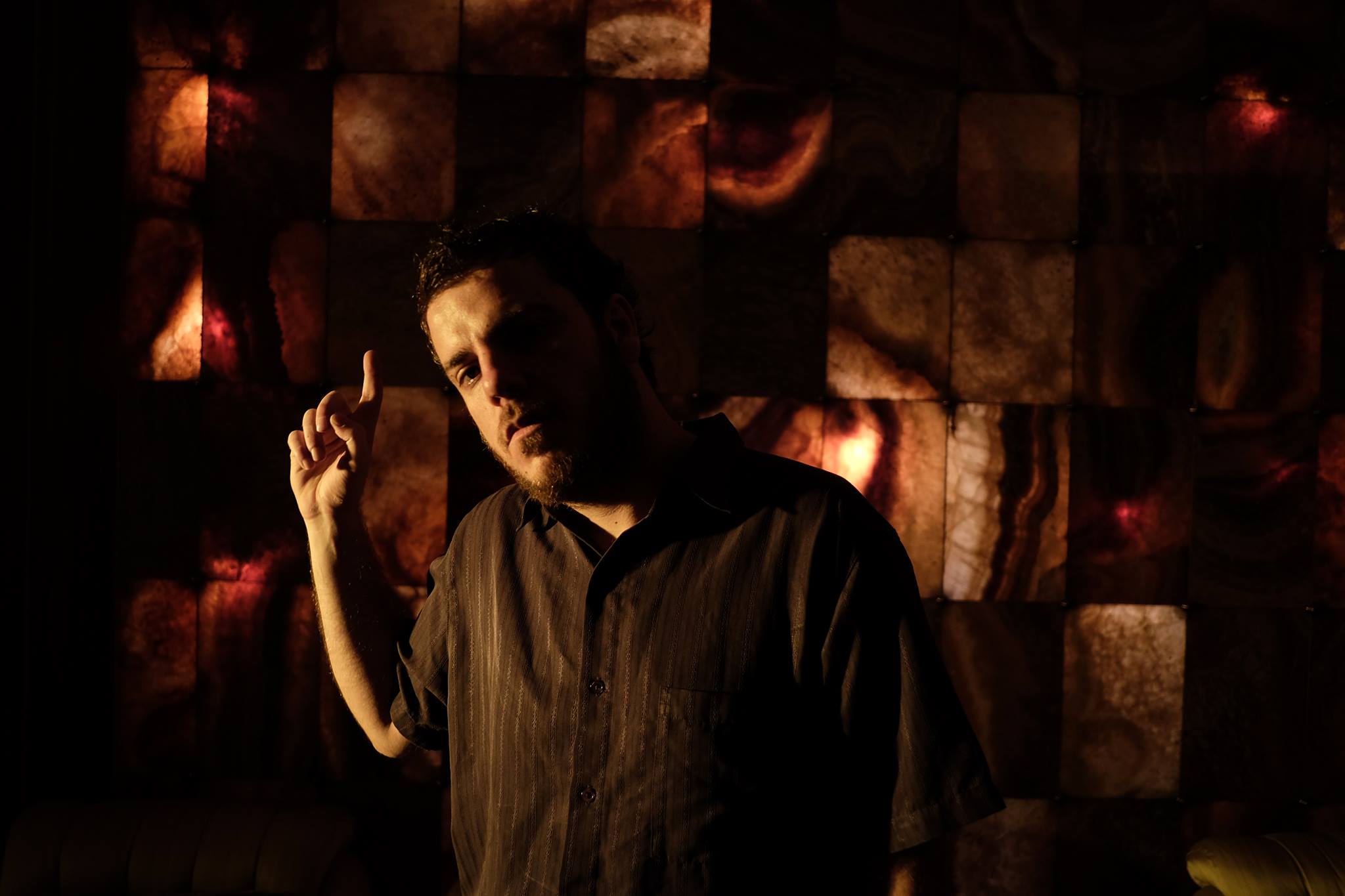
I have never interviewed a rapper before in my life. Interviewing El-Far3i (Tareq Abu-Kwaik) was one of those interviews that I was looking forward to. There were so many questions that I wanted to ask him and I didn’t know what to expect. I kept wondering if I would be able to ‘pull it off’, considering all the cultural references and details he layers in his songs.. Before we meet, I start preparing my questions, listen to his music once again and try to connect the dots for myself.
We plan to meet at Far3i’s friend’s house in Maadi’s Street 9, around 12:50pm. I was stressed, being already 20 minutes late. In a hurry, I ran up the stairs, rang the bell and Far3i opened the door with a smile: “Come on in, perfect timing! We were about to order some things from the supermarket, do you want anything?”
With his heart-warming welcome, I loosened up in an instant and went to unpacking my laptop as I observed his attitude and reactions before we started.
You carry a Palestinian flag sticker on your guitar...
It was actually a sticker of BDS (Boycott, Divestment and Sanctions) that said Kate3ou Israel; but then it got scratched and now only the flag remains which is also slowly diminishing. It's funny because, to some extent, what is happening to my sticker on the guitar resembles what I think about the Palestinian status. For a long time, I was a supporter of BDS but then I started thinking that maybe it's not necessarily the best approach to the problem of Palestine. It is a very important initiative of course, but recently I started thinking that we didn't even invent the Palestinian flag; the British did. So the flag has been scratched off as well. I feel that the sticker is following the changes of my ideology and the way I consider Palestine.
How do you connect with that, apart from the fact that you are Palestinian?
I hold a Jordanian passport so I am a Jordanian; but I am originally Palestinian. I do go to Palestine, to the West Bank specifically, to visit my family. To me it's natural to talk about what is going on but I try not to be labeled as the “revolutionary artist” just because I am Palestinian of origin. I am not an activist, I am a rapper.
But your words remain rebellious, very strong and targeted, to say the least…
I might choose to talk about something totally normal and not political. The timing affects me and dictates the topics I chose to write about; the circumstances we live in for sure affect me as a writer, but this is not an intentional decision. I don’t considering myself a rapper that speaks of politics or revolutions, but a rapper that reflects upon what is happening to him as a person living in present circumstances.

You're a multi-instrumentalist. You kicked off with drums, followed by vocals, guitar and rap. Have drums been an inspiration at any point for you to become a rapper?
That’s very much possible; I don't know what exactly drove me towards rapping, but I always liked grooves and beats. I always played drums on the table when I was younger, and I was always into writing Arabic poetry in classical Arabic language. I am fascinated with putting words over beats and how you can move them, changing their context. The whole ‘do you want to be with the beat or off beat?’ or ‘do you want to be with the off counts or the ones and twos?’ questions have been inspirational to me. Even the guitar has become percussion to me. I strum and create rhythms and beats, accompanied with melodies or chords, that I use to rap on.
You have a very powerful voice. Did you ever get any professional training?
Thank you! I never thought that I would be able to sing. It's funny because in the past my friends would beg me to stop singing actually, so I never saw that coming! I also went through the phase when people would be like, 'come on man, you're the drummer why do you insist on holding the guitar and the microphone?' And I would be like 'leave me alone people, let me experiment and have fun!' So no, I never took any training, and maybe I should. I actually work for an online music school called i3zif.com and I write most of the descriptions of the courses that school offers. So of course I managed to take a lot of the advice that I’d been writing for vocal courses myself! We could say that I went through three very good vocal training courses just because I had the chance to write descriptions for those courses, and all for free!
So what happened to El-Morabba3, you guys kind of agreed to separate which has resulted in a lot of frustration among the both El Morabba3 and El-Far3i fans…
It’s just a matter of focus. We were two song writers in a band. Also back then I was already a part of another project called 47SOUL, I was getting more and more engaged with that project as well as with my solo work. I took a different direction as a musician, and El-Morabba3have a certain sound that they are going for more and more. I am going for a sound that comes from a different concept and direction. So we went back to square one; I always wanted to be El-Far3i n whatever I am doing. At some point, we even changed the names of some of our songs to El Morabba3 and El-Far3i. So, I went from a person who co-founded the band to a featured artist; which is fine because after hearing El-Morabba3’s new material it shows how we both, as in El-Morabba3 and El-Far3i, went for two very different, and very distinct sounds in our music. I feel that we will definitely collaborate sometime in the future, once we become more defined with our sound in both of our projects. Nonetheless, it was for the good of the music itself. Even when I announced that I was leaving El Morabba3, I wrote that it was for the music. Of course people love the ‘behind the scenes’ drama, but there wasn’t any.
Tell me more about Kaman Dafsheh, your latest album. How do you feel about it, what were your inspirations when writing it?
This album was written in 2011 and 2012, and recorded pretty late. So when we were about to release it, it felt like old news to me to some extent and I was sceptical about it. The album contains many personal stories also that are descriptive of a certain and a very specific time. It is actually very tied to the Egyptian revolution, because it talks about my relationship with almost the beginning of the death of the Arab Spring. It also talks about how I feel about working with certain people, so there are also a lot of messages. Of course I want everyone to listen to it, but it more for Hip-Hop heads, production wise and lyrically.

It is very hard to define you as just a rapper. Your flow sometimes becomes more of a narration and a collage of influences. How did you gain that specific style, which is very distinct to you?
I worked a lot with El-Rass; I could say that the one thing we definitely share is that we don’t come from the mentality that defines Hip-Hop as “international hip-hop” and, therefore, there is “Arabic Hip-Hop.” I mean Hip-Hop is a culture, and what I respect about it is that you can’t really import it, you have to just follow it the way it is. I think we are just using the art of rap itself and we are placing it in different contexts. The freedom of using rap gives you space to express a lot; you can use a lot of words and play with them to deliver a certain and defined message. I think rap in general gives you more time to go into details, talk about specifics, due to the amount of words you can include. Point is, I am really not trying to localise Hip-Hop or rap to the region, and I think it’s too complicated for me to consider being a part of.
I really liked what you did with Damar on your latest album. You took us back to the whole sampling era fro 90s Hip-Hop. What samples did you use on the album and how did you approach the production aspect of this album?
I think Damarwould benefit you more on that front, but I think we went through Ethiopian, to Cambodian, to Arabic, to random 80s Pop samples. He has probably used samples from most continents. There are a few live instruments that appear on the album; I played a couple of bass guitar bars in songs, but mainly it was sampled. And it wouldn’t be really significant to say that instruments were used on the album, because they might have been produced as well, so there was no specific purpose of a live instrument aesthetic considered in production. Dr. Proph, who is also another very good producer whom I was looking forward to work with, produced the last two tracks, Shan Mahally and Moheet on the album. I think we’ve shared ideas, and layered them down and consequently that’s what came out.
When we spoke to Tamer Abu Ghazaleh regarding Electro Shaabi and the whole Mahraganat music, he referred to it as being ‘Underestimated from an artistic perspective. This is a new genre on a global scale.’ What do you think about this statement, since you are a member of 47SOUL, an Electro-Dabke project?
He’s definitely right; it’s underestimated from within the region because people think that it is actually very easy and I don’t think that a lot of people do it the easy way. I think that some people would claim that reason why its big is actually because it codifies the orientalist type look at it, and people like it. Both are true, but, I think it’s the responsibility of the musicians playing this music genre should really enrich this music and add to it, not just play on the evident and sort of abuse that culture. That is also what are trying to do with 47Soul, and we might fail, because we might not sound too Shaabi… and we are not trying to sound too Shaabi to be honest, as well. We are currently also working on our next record and are trying to fund it via Zoomaal.
Who do you want to collaborate with in the future?
There are a lot actually. If I could pick anyone and I truly feel that we could do something interesting together, even though we have talked about this and have never followed the plan, I think it would be Maurice Louca. Also, Tamer Abu Ghazaleh and Ali Talibab. I am actually thinking that for my next work as El-Far3i, I think I would want to collaborate with new instrumentalists and see how would that work for me.
Finally, what is on your iPod or what are you listening to these days?
Maurice Louca’s Salute the Parrot, and for some reasons, J-Cole. I am also listening to Rashid Taha’s Zoom album but I am not really feeling it. Other than that, Z The People, who is also a part of 47SOUL.
All photos courtesy of El-Far3i's official Facebook page. Main image taken by Nasser Kalaji. Special thanks to Angie Balata.
- Previous Article Getting Abyusif
- Next Article DGTL: Much More than a Music Festival
Trending This Month
-
Dec 15, 2025



